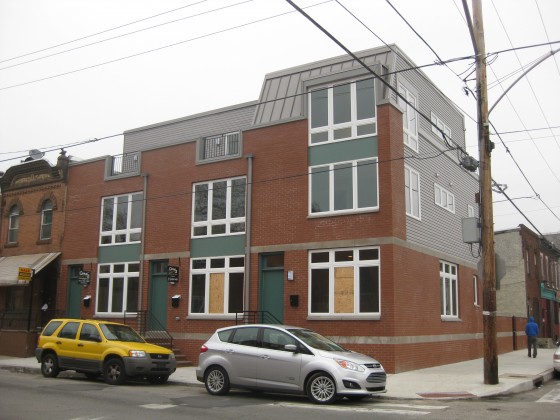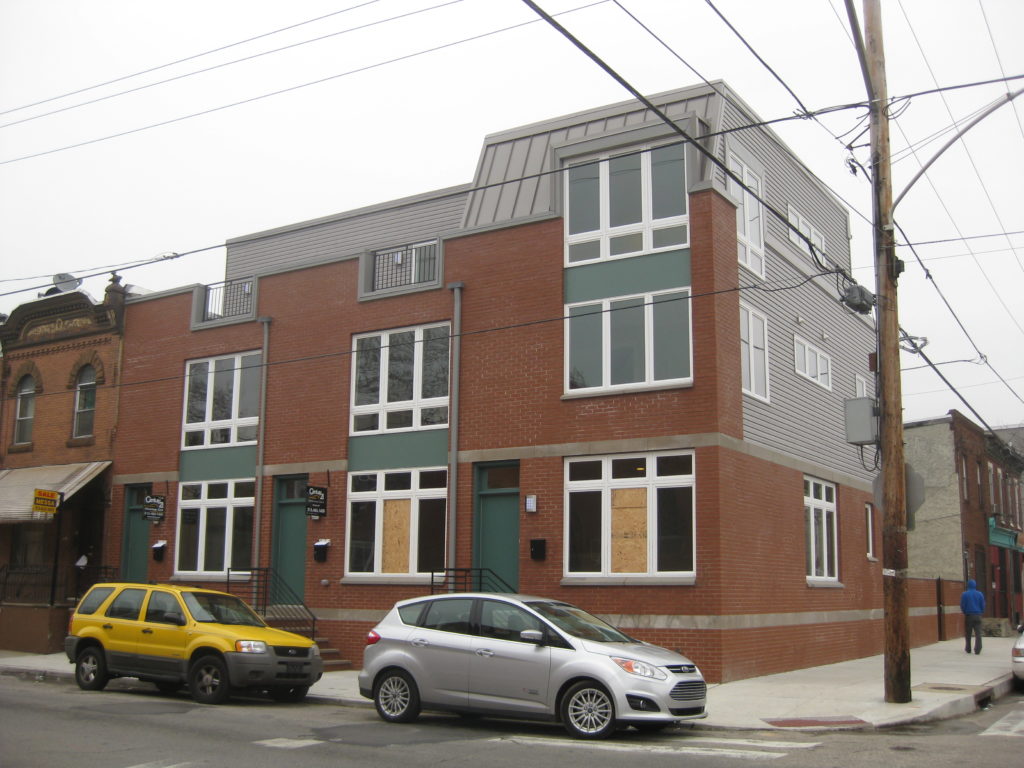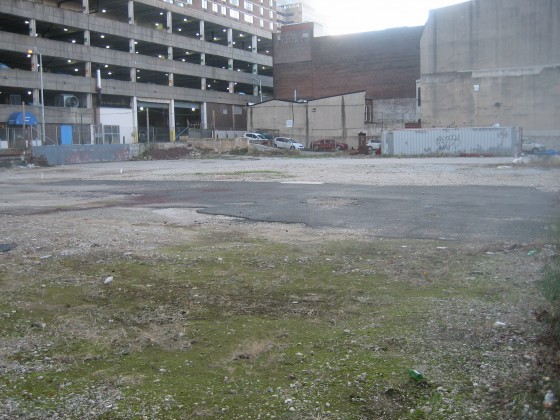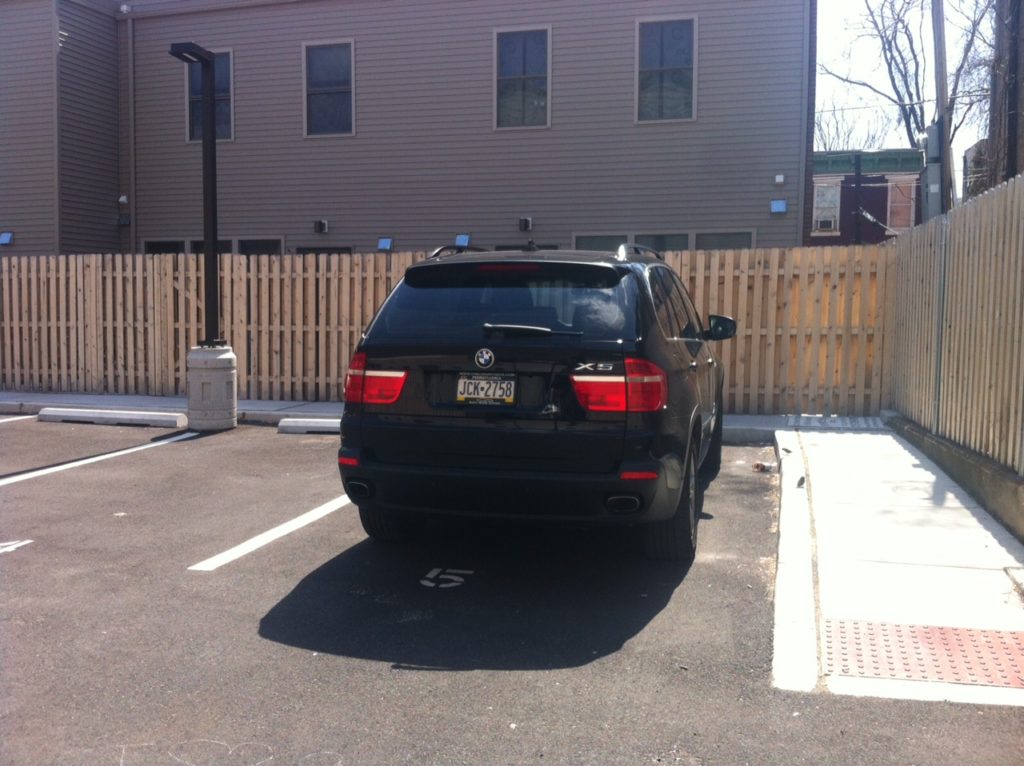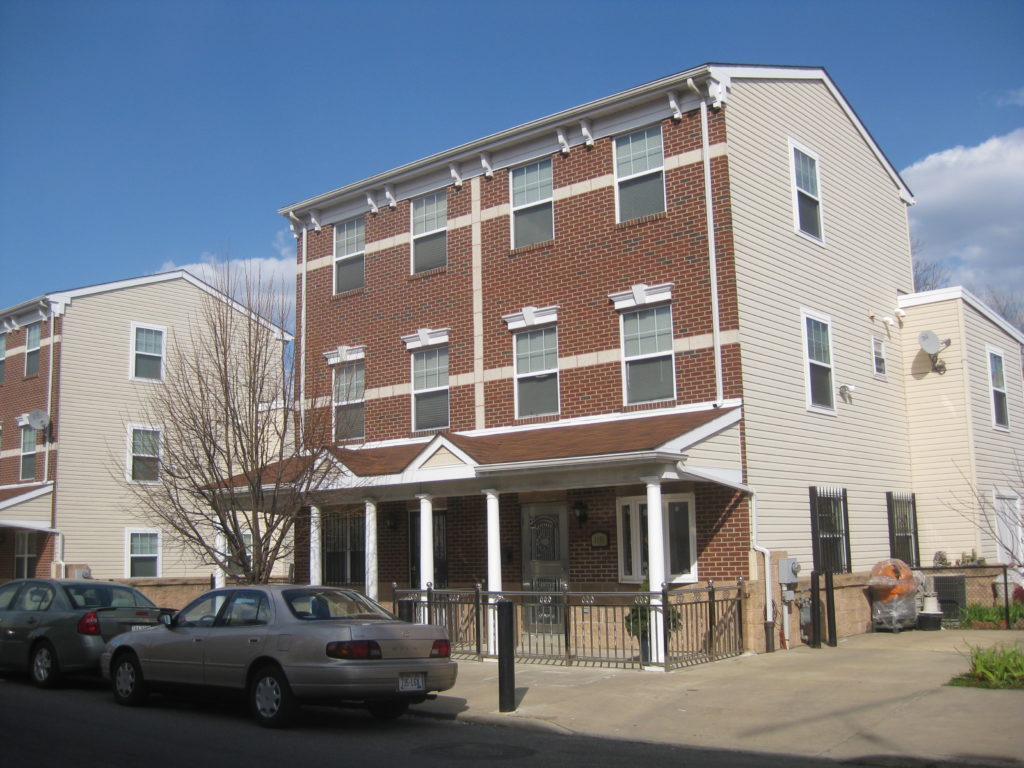Over the last few years, forty-one homes have risen in the Point Breeze neighborhood thanks to funding from the Neighborhood Stabilization Program (NSP), which was “established for the purpose of stabilizing communities that have suffered from foreclosures and abandonment.” With financing administered by the Redevelopment Authority, these homes have been presented by politicians and in the media as affordable housing options. As former PRA executive director Ed Covington said in an Inquirer article last year, “These homes represent an opportunity for families of average means to buy a house in a revitalizing neighborhood.”
But are these homes affordable? And are the people buying them truly those being targeted by the program? The question of whether these homes are actually affordable at prices ranging from $125K – $250K has certainly been discussed, but now that sales of several of the homes are public record, we took a look at some of the buyers of these homes and came to some alarming conclusions.
First, however, a look at the requirements for who can buy an NSP home:
Community Ventures built four homes on the 1600 block of Federal St., three on the 1600 block of Manton, and four more on the 1200 block of S. 17th Street. According to public record, at least three of these homes were purchased by individuals that clearly had no need for any assistance in purchasing their new home. Just look at the down payments!
1624 Federal St. was purchased by Malinda Wu for $150K. She made a $65K down payment.
1626 Federal St. was purchased by Eunice Wu for $175K. She made a $48K down payment.
1631 Manton St. was purchased by Thy Tran for $150K. This individual also made a $48K down payment.
We don’t know about Tran, but Facebook stalking indicates that both Malinda and Eunice are students, allowing them to meet the $44K/year income requirement set out by NSP. But with down payments like that, it’s clear that they have access to some significant wealth. Was the down payment a gift from family? We don’t know what else could be going on here.
Since there’s no asset-requirement listed in the qualifications, no rules were broken in the purchase of these homes. But the spirit of the program is certainly violated. Sure, the construction of these homes help “stabilize the neighborhood,” but couldn’t private developers have done the same thing, without any government subsidies? The bill of goods we were sold on this project was that it was okay that the City gave away the land and that the Federal government gave away millions of dollars because it would help low and moderate income individuals purchase homes. But could the person who owns the car pictured below really have a merely moderate income???
This is not a new phenomenon, either. Around the corner, Universal constructed about a dozen homes on the 1200 block of S. 16th St. a few years ago, apparently with similar sales guidelines. Take a look at some sales data from back then:
1149 S. 16th St. was purchased by Winona Wu for $115K with a down payment of $35K
1151 S. 16th St. was purchased by Shui Leung for $115K with a down payment of $30K
1157 S. 16th St. was purchased by Feng Zhen Nu for $115K with a down payment of $81K
1159 S. 16th St. was purchased by Pok Lai for $115K with a down payment of $48K
1165 S. 16th St. was purchased by Ting Khing Hoe for $115K with a down payment of $55K
1167 S. 16th St. was purchased by Zhi Mei for $115K with a down payment of $30K
As you see, all of these buyers made significant down payments, like the three buyers listed above. One of the cash buyers, Winona Wu, is related to Malinda and Eunice Wu, two of the buyers on Federal Street that put down huge down payments. And wouldn’t you know, Winona Wu took a $250K loan out on her home just a couple of years after she bought it. If the bank was willing to lend that kind of cash, it’s clear that Ms. Wu would have been able to purchase a more expensive home that wasn’t priced at half off thanks to government subsidies. And hey, buying a subsidized home despite not needing the help worked out so well for Winona that Malinda and Eunice followed her lead just a few years later!
We’re sure that these three are all wonderful individuals, as are all of the folks who purchased these subsidized homes. But it’s crystal clear that none of the buyers listed above needed government assistance in purchasing their homes, and it’s unfortunate that carelessly crafted rules allow for these sorts of shenanigans to take place. And not for nothing, but politicians have been banging the drum that these sorts of projects would help keep people from being priced out of their neighborhood. But our research shows that only one of twenty NSP buyers to this point has any roots in Point Breeze. And most are under the age of thirty.
We think affordable housing is extremely necessary, especially in developing neighborhoods. But it certainly isn’t working the way it’s supposed to at this time. The City must completely reexamine its affordable housing strategy from this point forward, and put restrictions in place to make sure that it doesn’t offer wealthy individuals an opportunity to game the system. Frankly, it’s about time.
Editor’s note: An earlier version of this post indicated that 1149, 1157, and 1165 S. 16th St. were purchased for cash. This error has been corrected.

